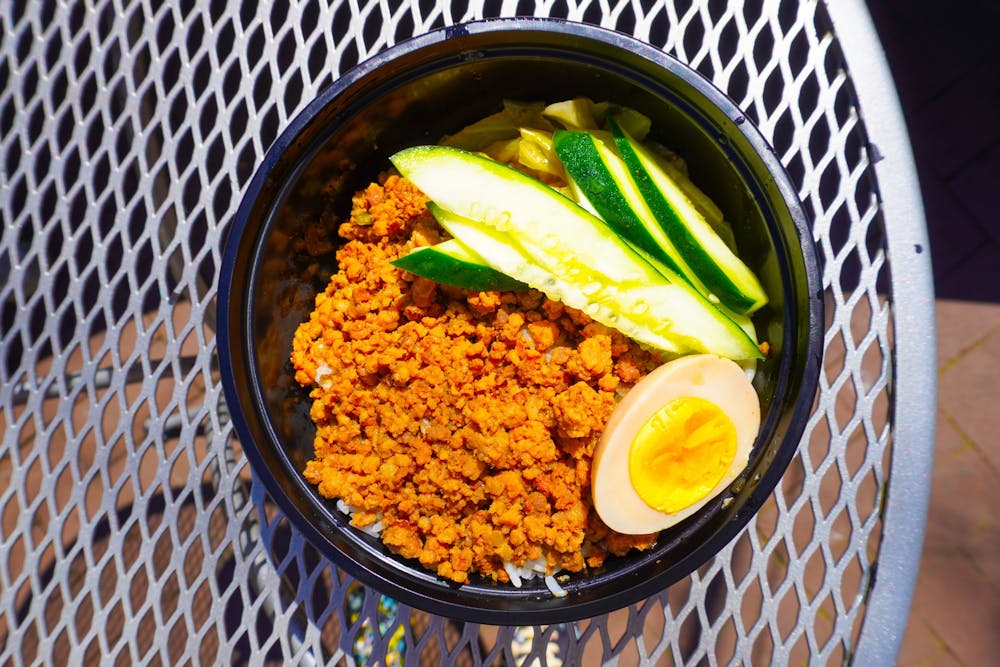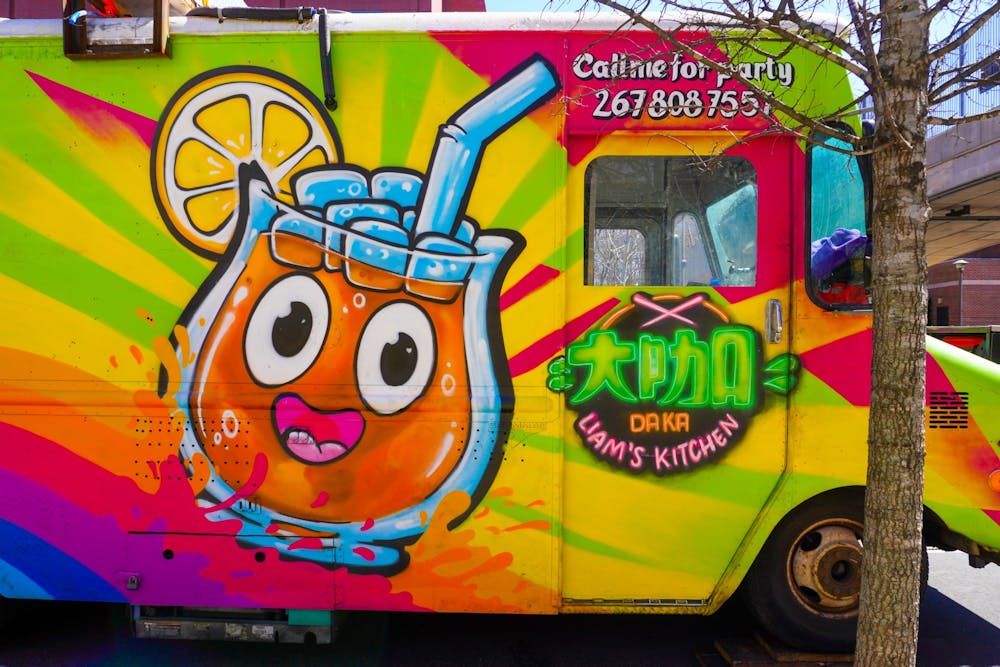On South 38th Street right underneath Penn’s Locust Walk pedestrian bridge, close to the Perry World House, you'll find a truck covered up with graffiti and colorful paints. It's Liam's Kitchen, or 大咖 ("daka"), a newly opened food truck on campus that promotes innovative Hong Kong cuisine.
Compared to other on–campus food trucks, Liam’s Kitchen is especially vivid and stylish. According to the owner Aiyi, Liam's Kitchen was born in November 2021 right after she took over the food truck from Yun Yee, which was in business for more than 30 years at the same spot. Fun fact about this truck: It’s a 1983 Chevy and still running strong.
As a Chinese international student, I’d say Liam’s Kitchen is the most authentic and most affordable Chinese food in University City. Not feeling the schlep to Chinatown? Craving some pork and cabbage dumplings in between classes? Then Liam’s is your go–to. It’s open from 11:30 a.m. to 4 p.m. Monday through Friday, plus you can get a feast there for under $15. The average price of its rice bowls is only around $9, which is totally reasonable for a quick, delicious, and filling lunch. Like most food trucks, Liam's accepts cash and Venmo.
Liam’s food is all made to order and very tasty. The Hong Kong–style milk tea, crispy chicken rice bowl, and Taiwanese braised pork rice bowl are some of its signature items. My personal favorites are the chicken shiitake mushroom rice bowl and Hokkien hae mee (shrimp noodles)—honestly, they’re as good as my mom’s home–cooked ones. In addition, all rice bowls can be substituted for half rice and half cabbage for the same price, which is great if you’re in the mood for a lighter meal or want to get your veggies in.

Pictured: Taiwanese braised pork rice bowl
Liam’s also has some creative items like Hong Kong–style French toast, which customers rave about. It's a slice of milky, egg–battered toast, freshly fried and stuffed with peanut butter (or jam or Nutella). Atop the bread, a square pat of butter sits in the middle, and a little condensed milk dribbles down.
After eating some delicious food, I was able to interview the owner Aiyi, and I’m deeply impressed by the background of Liam’s Kitchen. Aiyi is very sweet and cordial. She's always busy at the food truck, but recognizes me and makes sure to say hi every time I go.
Aiyi says that her philosophy is to cook with passion, serve with joy, and bring people together: "After working for corporate restaurant chains for quite some time, I realized what truly bonds [us with our] guests are the characteristics that the business carries. And I think those characteristics are represented by [both] our employees and through the food we make to serve our guests. I genuinely wanted to share what we eat at home with every single guest in our community to build that bond." Aiyi likes to experiment and offer a couple of limited new dishes every week. She has a group chat in which you can order from her secret menu.
Aiyi also told me a story about her oldest son. He once asked her who he was, because a classmate of his posed this question to him. Her son told his classmate that he was American, but the classmate firmly believed that Aiyi’s son was Chinese. He was confused during this time regarding his identity—he's actually American–born Dominican–Chinese—and Aiyi herself experienced this confusion as a child, growing up in various cultures and moving from place to place.
Therefore, she decided to start the food truck and name it Liam’s, which stands for Lorenzo, Ian, Aiyi, and Maximo—the first names of everyone in Aiyi's family. Aiyi says that she wants to be a role model for her children—no matter how ambiguous one's identity is or how embarrassed one might feel, she wants to teach them to understand their identity and be proud of it—to be grateful for the growing process and develop their uniqueness to contribute to the larger community.
Through Liam's Kitchen, Aiyi hopes to use her food as a medium to celebrate diversity and raise awareness of inclusion and influence to the local community. In sharing the tastes of China, Liam's Kitchen offers new experiences and catalyzes cultural exchange amid this tense post–pandemic era.

